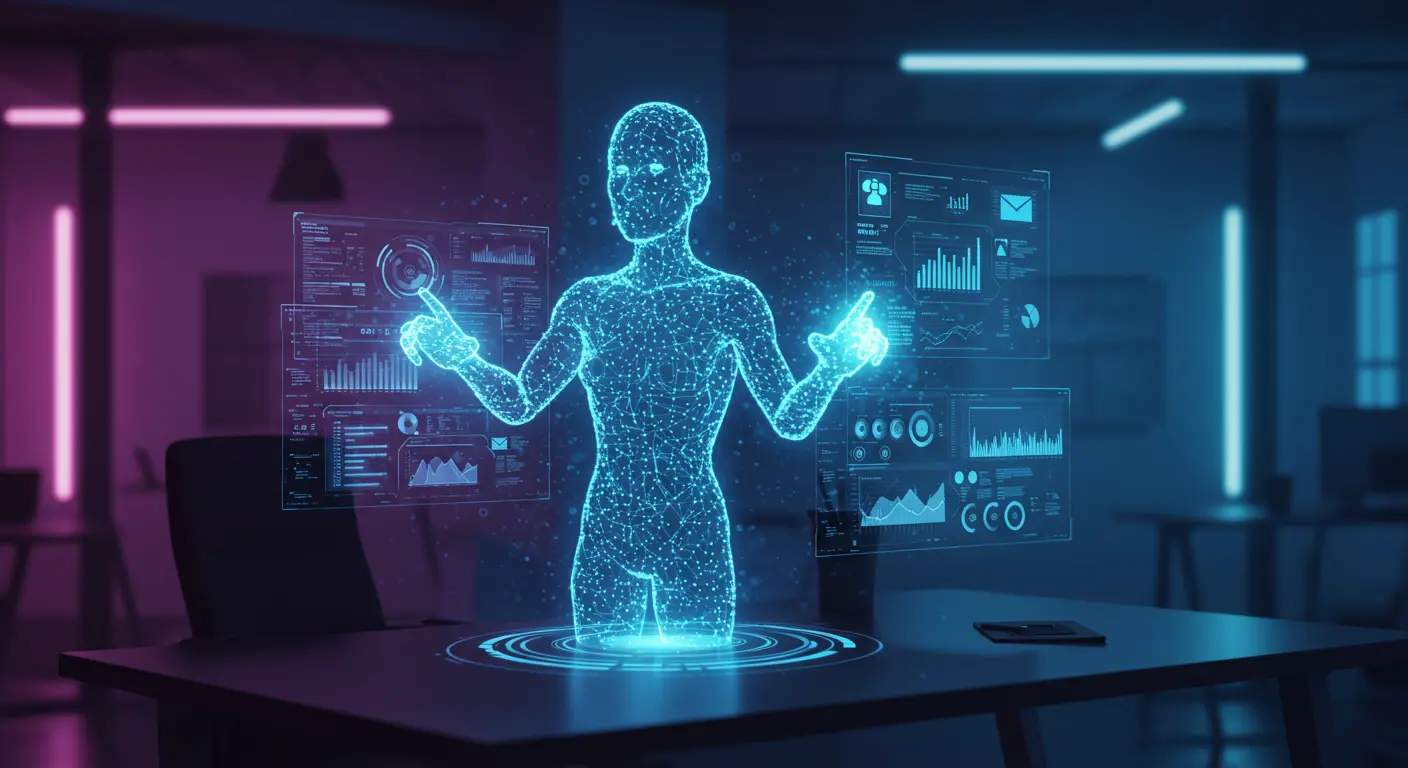Table of Contents
Introduction: Why AI Agents Matter Now
In 2025, AI agents are no longer just futuristic experiments — they’re practical tools shaping how businesses and individuals work. Unlike traditional AI systems that wait for human prompts, AI agents act autonomously, making decisions, executing tasks, and even collaborating with other digital systems.
From scheduling meetings to running complex data analyses, AI agents are becoming digital teammates, unlocking productivity and innovation at a scale we’ve never seen before.
What Are AI Agents?
An AI agent is a software entity powered by artificial intelligence that can perceive its environment, make decisions, and act independently to achieve specific goals.
In simple terms, AI agents don’t just answer questions — they do the work for you.
Examples:
- A sales AI agent that follows up with leads automatically.
- A personal AI agent that manages emails, travel bookings, and reminders.
- A financial AI agent that monitors markets and executes trades.
How AI Agents Work
AI agents combine multiple technologies:
- Natural Language Processing (NLP): To understand human instructions.
- Machine Learning: To improve decisions over time.
- APIs & Integrations: To connect with external apps and systems.
- Autonomous Decision-Making Models: To plan and execute tasks without constant human input.
Key Features of AI Agents
- Autonomy: Operate without constant supervision.
- Goal-Oriented: Designed to complete specific objectives.
- Learning Capability: Improve with experience and feedback.
- Collaboration: Can work with other agents or humans.
- Context Awareness: Understand environments and adjust actions accordingly.
Types of AI Agents
- Reactive Agents – Respond to real-time inputs without memory (e.g., chatbots).
- Learning Agents – Improve performance over time with machine learning.
- Collaborative Agents – Work with humans or other agents to achieve shared goals.
- Autonomous Agents – Perform tasks independently across multiple domains.
AI Agents in Real-World Applications
Business & Productivity
Companies use AI agents to automate workflows:
- Drafting emails
- Managing schedules
- Generating reports
- Handling customer service inquiries
Healthcare
AI agents support:
- Patient monitoring through wearable data
- Automated diagnostics
- Personalized treatment recommendations
Finance
AI agents are applied in:
- Algorithmic trading
- Fraud detection
- Personalized financial planning
Creative Industries
AI agents now assist with:
- Writing drafts and blogs
- Generating marketing content
- Designing prototypes and creative assets
AI Agents vs. Traditional AI Systems
While traditional AI tools (like chatbots) respond only when prompted, AI agents take proactive action. They don’t just answer — they act.
Example:
- Traditional AI: You ask a chatbot to summarize an email.
- AI Agent: Reads your inbox daily, summarizes emails, prioritizes tasks, and even drafts replies.
Challenges and Limitations
- Ethical Concerns: Can autonomous decision-making cross moral boundaries?
- Security Risks: Malicious use or hacking of AI agents.
- Trust & Transparency: Users must understand why an agent made a decision.
- Dependence on Data: Without quality data, agents may act incorrectly.
The Future of AI Agents
By 2030, AI agents could evolve into fully integrated digital colleagues, handling everything from HR processes to scientific research. Their impact on productivity, creativity, and global economies will be profound — but managing ethical and regulatory challenges will be key.
Final Thoughts & CTA
AI agents are more than tools; they’re becoming partners in our digital lives. As their capabilities expand, the line between human and machine-driven work continues to blur.
📌 Want to explore more on AI agents, automation, and the future of work? Check out the latest insights on Encyclotech.
Stay connected for weekly updates, pins, and expert takes on emerging tech.
→ Twitter | Pinterest | Bluesky | Medium

